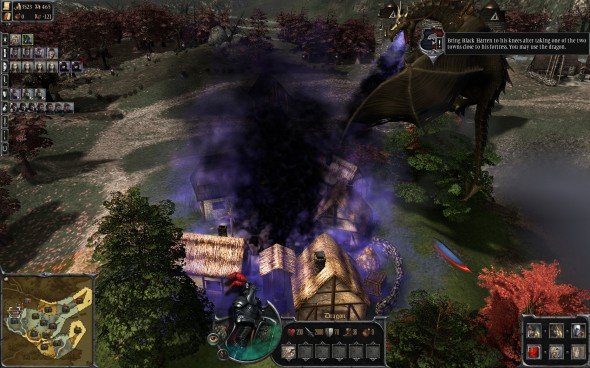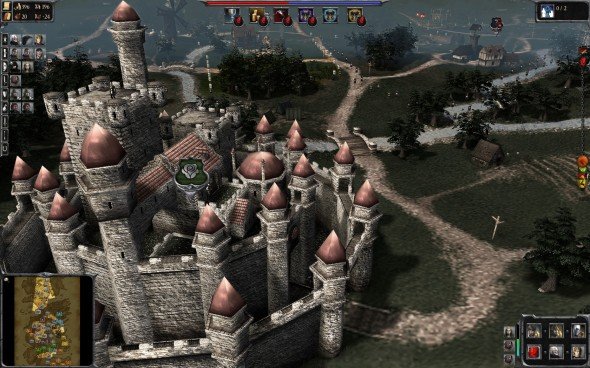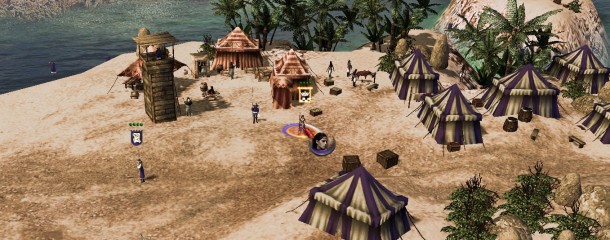Our Verdict
When you play the game of thrones, you win or you die. There is no middle ground. This... dies.
PC Gamer's got your back
Based on the fascinatingly sadistic A Song of Ice and Fire novels by George RR Martin, Game of Thrones should make for a perfect strategy game. The books are purely about lethal plots, arrogant nobles fighting pointless wars, and the suffering populace of a world failing to face an undead threat coming with the long winter. And dragons. Having included all of that, how could Genesis fail?
Well, by not capturing that feel at all. The RTS element has a structure as traditional as Age of Empires II. The singleplayer campaign tracks, somewhat tediously, through the lightly-sketched history of Westeros. The missions are varied but plodding, where characters about as strong as paper bags follow arbitrary paths on 2D maps.
This isn't the majority of the game. That's House to House – the skirmish / multiplayer mode. The Houses (the leading families of the books, eg, Stark or – spits – Lannister) must raise prestige to win. This is gathered in a range of strange ways – not having your bastard children revealed, not being humiliated by betrayal, or even by killing the most people – and it's this mode and only this mode that's worth playing. Once your prestige passes 100, you win.

There are two types of resource economy. Ally with towns or castles and you'll create merchants to bring you gold, to hire social agents or mercenaries. Meanwhile, peasants work on the fields to create food. Once you have an excess of food (a shortage is strangely not a problem) it can be used to raise armies, which are slightly more specialised, tougher mercenary units – pikemen, crossbowmen and the like.
As players perform ill-defined aggressive actions, a ticker at the screen's top tells you how near you are to war. It's a nice idea, but not mechanically obvious.
Each house has a specialism and special unit. The Starks, for example, field tough commanders, fast footmen and direwolves. Despite this variety, combat is mostly messy and the unit AI is poor.
It's lucky, then, that the core of the game is subterfuge. Each player has agents, bought with gold, with a variety of talents. More abilities can be unlocked by experienced units (which can be bought, for a premium) or through another resource. These agents can be used to acquire territory, scout, nobble or protect other agents, and generally confuse the issue of who's winning.

The Spy can detect hidden enemy agents as long as he doesn't move, and detect traitor towns and agents by inspecting them. If he gets experience, he can take an enemy disguise and be upgraded, enabling him to sign secret agreements with the enemy's allies – so they'll join your side if it turns to war. The cheap Envoy makes agreements, the Noble Lady makes alliances unbreakable – until the Assassin kills her. The Rogue raises rebellions and buys loyalty, and the Guards protect important characters and arrest enemy characters – who can then be ransomed back. All of these tools are fun to use, but in larger levels the micromanagement swiftly becomes overwhelming, and it's not always clear whether what you're doing is relevant to your success.
As a singleplayer experience, this isn't great. It's messy, slow without being clear, graphically not cutting edge, and the loooong campaign just isn't compelling enough. The skirmish mode would be fun, but all of these espionage tools are no use without a real person to use them on, which is what multiplayer's for. And, as we knew already, that's the only way to play the Game of Thrones.
When you play the game of thrones, you win or you die. There is no middle ground. This... dies.


